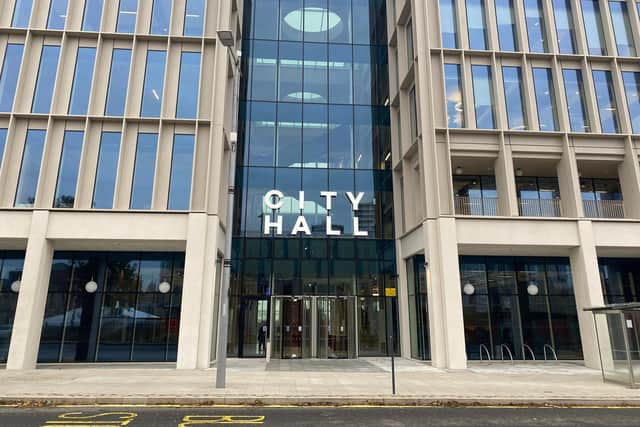Sunderland council tax rise approved by senior councillors, who called it a 'difficult decision'
and live on Freeview channel 276
Sunderland City Council’s ruling cabinet have endorsed spending plans for the 2023/24 financial year, including council tax proposals.
Central Government assumes that local authorities across the country will raise council tax by just under 5% next year to help fund local services.
Advertisement
Hide AdAdvertisement
Hide AdHowever, plans backed by senior Sunderland councillors have proposed a lower rate in recognition of the impacts of the cost of living crisis.


The proposed council tax rise of 2.99% is made up of a 1.99% increase in core council tax to help pay for day-to-day services.
This includes running and maintaining services such as schools, providing care for the elderly, collecting rubbish, maintaining roads and street lights.
The remaining 1% of the council tax rise is linked to a Government adult social care levy, raising an extra £1.7million to help tackle increased demand and cost pressures on adult social care services.
Advertisement
Hide AdAdvertisement
Hide AdSunderland City Council’s Labour cabinet endorsed the 2.99% council tax rise at a meeting at City Hall on Thursday, February 2.
Final decisions on council tax are due at the council’s annual budget meeting at City Hall later this month.
Subject to the proposals being approved, the majority of Sunderland households are expected to pay less than £1 a week extra towards council services.
This includes a rise of 61p per week for a Band A property, with a total of 80,166 properties on Wearside falling into this category, and a rise of 91p per week for an average Band D property.
Advertisement
Hide AdAdvertisement
Hide AdThe final bill issued by Sunderland City Council will include separate levies linked to the region’s police and fire and rescue services, although decisions around these ‘precepts’ are taken by other statutory bodies.
Precept figures are expected to be finalised in coming weeks and could see changes to the final amounts appearing on Sunderland residents’ household council tax bills.
It is anticipated that Sunderland’s council tax, which raises around £16 for every £100 in the council’s services budget, will again remain the lowest in the North East region.
This is despite reductions in Central Government funding in previous years, as well as current inflationary pressures on the local authority.
Councillor Paul Stewart, Sunderland City Council’s cabinet secretary, told the cabinet meeting this week: “Raising council tax at all is one of those difficult decisions.
Advertisement
Hide AdAdvertisement
Hide Ad“If we don’t raise council tax we will need to cut services and reduce our investment into key priority areas.
“That would mean cuts in services to those most vulnerable in our communities and to the services which residents tell us are a high priority.
“In relation to council tax, this council and this cabinet has always done what it can to ensure that we have minimised council tax increases in this city, unlike other authorities such as Northumberland.
“For a number of years now this council has had the lowest council tax in the whole of the North East and we expect that, come 2023/24, that again this city will have the lowest council tax in the whole of the North East.
“We’re a low tax authority because we’re here to support our residents again during this cost of living crisis caused by this Government”.
In the coming year 2023/24, savings of £13.378million and the use of reserves have been proposed by local authority bosses to help balance the books.
Advertisement
Hide AdAdvertisement
Hide AdCllr Stewart said that the proposed revenue budget includes several proposals to support residents, such as making free pest control services permanent as well as free wheelie bin replacements to residents with stolen bins.
In addition, free bulky waste collections are expected to be made available to residents from April, 2023.
Investments in the latest budget also aim to help improve infrastructure, and promote economic growth and are part of the ongoing City Plan to make Sunderland a more dynamic, healthy and vibrant smart city.
Elsewhere, new infrastructure investments are being prepared alongside the City Plan’s wider capital investment programme in coming years.
New start proposals include schemes supporting the delivery of frontline services, from investments around replacement vehicles and equipment to maintenance and improvement of the council’s property assets.
Further improvements to highways, bridges, port and quay infrastructures and investment into operational ICT assets are also expected.
Budget plans will be presented for debate and decision at Sunderland City Council’s annual budget meeting at City Hall on Wednesday, February 22, 2023.
The meeting is expected to start at 4pm and will be open to the public, as well as being available to watch via the council’s YouTube channel.